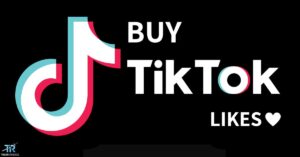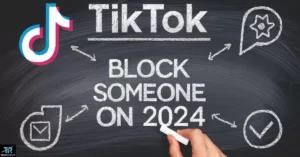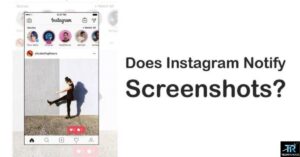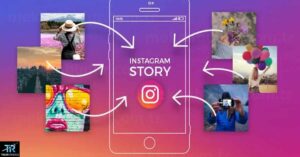In the ever-evolving landscape of online entrepreneurship, a new frontier has emerged: AI influencers. These digital personalities are revolutionizing the way we think about content creation, social media influence, and passive income. In this comprehensive guide, I will walk you through my journey of building an AI influencer that’s not just turning heads but also turning a profit. Whether you’re a tech enthusiast, a budding entrepreneur, or someone looking to dive into the world of faceless content, This article will provide you with the insights and steps to create your own AI money-maker in 2024.
The Rise of AI Influencers: A New Era of Digital Influence
The concept of AI influencers might sound like science fiction, but it’s quickly becoming a reality in our digital world. These virtual personalities, powered by artificial intelligence, are making waves across social media platforms, engaging with audiences in ways that were unimaginable just a few years ago.
Current Landscape of AI Influencers
In 2024, the AI influencer market is booming. From fashion icons to tech gurus, these digital entities are carving out niches in various industries. Take, for example, Lil Miquela, one of the pioneers in this space, who has amassed millions of followers and lucrative brand deals. But she’s not alone. The market is seeing a surge of AI-generated personalities, each with its unique flair and following.
Why AI Influencers Are Gaining Traction
The appeal of AI influencers lies in their versatility and consistency. Unlike human influencers, AI personalities don’t have off days, can work around the clock, and can be easily tailored to fit brand needs. This reliability, coupled with the novelty factor, makes them incredibly attractive to businesses looking for innovative marketing strategies.
Potential Earnings and Market Projections for 2024
The financial potential of AI influencers is staggering. According to recent market research:
| Year | Projected Market Value | Growth Rate |
| 2024 | $10 billion | 25% |
| 2025 | $15 billion | 50% |
| 2026 | $22 billion | 46% |
These figures underscore the massive opportunity in this space, making it an exciting time for entrepreneurs to enter the market.
My Journey: From Idea to Income

The Lightbulb Moment
It all started when I stumbled upon a video of an AI-generated news anchor. The realism was uncanny, and it got me thinking: If AI can deliver news, why can’t it be an influencer? This was my eureka moment, the spark that ignited my journey into the world of AI influencers.
Initial Research and Planning
I dove headfirst into research, consuming everything I could about AI technology, video creation, and social media trends. I spent weeks learning about:
- Deep learning algorithms
- Natural language processing
- Computer vision
- Social media analytics
Armed with this knowledge, I began to formulate a plan. I envisioned an AI influencer that would combine cutting-edge technology with engaging content to create a unique online presence.
Overcoming Skepticism and Challenges
The road wasn’t smooth. Friends and family were skeptical. “How can a computer program be an influencer?” they’d ask. Even I had moments of doubt. But I pressed on, driven by the potential I saw in this emerging field.
Step 1: Designing Your AI Influencer
Choosing a Niche and Personality
The first crucial step was defining who my AI influencer would be. I decided to create “Zara,” a tech-savvy, environmentally conscious fashionista. This combination allowed me to tap into multiple trending niches while maintaining a unique identity.
Creating a Backstory and Values
To make Zara feel authentic, I crafted a detailed backstory:
- Born in Silicon Valley to a software engineer and a fashion designer
- Passionate about sustainable fashion and technology
- Mission: To promote eco-friendly living through innovative tech solutions
These elements gave Zara depth and relatability, crucial for connecting with an audience.
Visual Design and Branding
Zara’s look was pivotal. I collaborated with a digital artist to create an AI avatar that was:
- Racially ambiguous to appeal to a diverse audience
- Stylish yet approachable
- Subtly futuristic to hint at her AI nature
We went through numerous iterations before landing on the perfect design that embodied Zara’s personality and values.
Step 2: Building Your AI Influencer
Selecting the Right AI Tools and Platforms
Building Zara required a suite of cutting-edge tools. Here’s what I used:
- GPT-4 for natural language generation
- Midjourney for image creation
- Play.ht for voice synthesis
- DeepArt for style transfer in videos
- Synthesia for video generation
These tools formed the backbone of Zara’s content creation process.
Training Your AI Model
Training Zara’s AI model was a meticulous process. I fed the model with:
- Thousands of fashion and tech articles
- Hours of YouTube videos on sustainable living
- Social media posts from top influencers in the niche
This data helped shape Zara’s ‘personality’ and knowledge base.
Fine-tuning Language and Interactions
Getting Zara’s voice right was crucial. I spent weeks fine-tuning her language model to ensure she could:
- Use current slang and internet lingo
- Adapt her tone for different platforms (e.g., more professional on LinkedIn, casual on TikTok)
- Respond to comments in a natural, engaging way
Step 3: Launching Your AI Influencer
Choosing the Right Social Media Platforms
I decided to launch Zara on multiple platforms to maximize reach:
- Instagram for visual content and stories
- TikTok for short, engaging videos
- YouTube for longer, in-depth content
- Twitter for quick updates and engagement
Each platform required a tailored strategy to play to its strengths.
Creating Your First Content Pieces
Zara’s debut content included:
- An introduction video on YouTube explaining her mission
- A series of Instagram posts showcasing eco-friendly fashion tips
- TikTok videos demonstrating easy tech hacks for sustainable living
- Twitter threads discussing the intersection of technology and environmental conservation
Building an Initial Following
To kickstart Zara’s following, I:
- Collaborated with micro-influencers in the tech and fashion space
- Ran targeted ads on each platform
- Engaged actively in relevant online communities and forums
Within the first month, Zara had gained 10,000 followers across platforms.
Step 4: Growing Your AI Influencer’s Audience
Content Strategy and Scheduling
Consistency was key to Zara’s growth. I developed a content calendar that included:
- Daily Instagram posts and stories
- 3-4 TikTok videos per week
- Weekly YouTube videos
- Regular Twitter engagement
I used tools like Buffer and Hootsuite to schedule posts, ensuring a consistent online presence.
Engagement Techniques
To boost engagement, I implemented several strategies:
- Responding to comments within 24 hours
- Hosting weekly Q&A sessions
- Creating interactive polls and quizzes
- Featuring follower content in Zara’s posts
Collaborations and Cross-Promotions
Collaborations were crucial for expanding Zara’s reach. We partnered with:
- Sustainable fashion brands for product showcases
- Tech companies for gadget reviews
- Environmental non-profits for awareness campaigns
These partnerships not only grew Zara’s audience but also added credibility to her brand.
Step 5: Monetizing Your AI Influencer
Sponsored Content and Brand Deals
As Zara’s following grew, brands started reaching out. We secured deals with:
- Eco-friendly fashion labels
- Sustainable tech companies
- Green energy startups
Each sponsored post was carefully crafted to align with Zara’s values and resonate with her audience.
Merchandise and Digital Products
We launched a line of Zara-branded products:
- Sustainable phone cases
- E-books on tech-driven eco-living
- Virtual workshops on sustainable fashion
These products provided a steady stream of passive income.
Subscription-Based Exclusive Content
We introduced a Patreon account offering:
- Behind-the-scenes looks at Zara’s ‘life’
- Exclusive tutorials and tips
- Early access to collaborations and merch
This subscription model added another layer to our monetization strategy.
Legal and Ethical Considerations

Disclosure and Transparency
Transparency was non-negotiable. We:
- Clearly labeled Zara as an AI influencer in her bio
- Disclosed all sponsored content and affiliate links
- Regularly addressed questions about Zara’s AI nature
Copyright and Intellectual Property
Navigating IP rights with an AI influencer was tricky. We:
- Used only licensed or original content
- Credited all human collaborators
- Consulted with IP lawyers to ensure compliance
Privacy and Data Protection
Protecting user data was paramount. We implemented strict policies to:
- Safeguard follower information
- Comply with GDPR and other data protection regulations
- Use data responsibly for improving user experience
Recommended Post: The Ultimate Guide to AI Signature Generators: Top 10 Picks for 2024Challenges and Solutions
Maintaining Authenticity
One of the biggest challenges was keeping Zara ‘real’ in a world of human influencers. We addressed this by:
- Regularly updating Zara’s knowledge base with current events
- Incorporating real-world experiences shared by followers
- Being honest about limitations and mistakes
Handling Negative Feedback
Not everyone was receptive to an AI influencer. We tackled criticism by:
- Engaging in open dialogues about AI ethics
- Highlighting the positive impact of Zara’s message
- Continuously improving based on constructive feedback
Staying Ahead of Platform Algorithms
Social media algorithms were constantly changing. To adapt, we:
- Stayed updated on platform policy changes
- Experimented with new features and content formats
- Analyzed performance data to refine our strategy
Future of AI Influencers
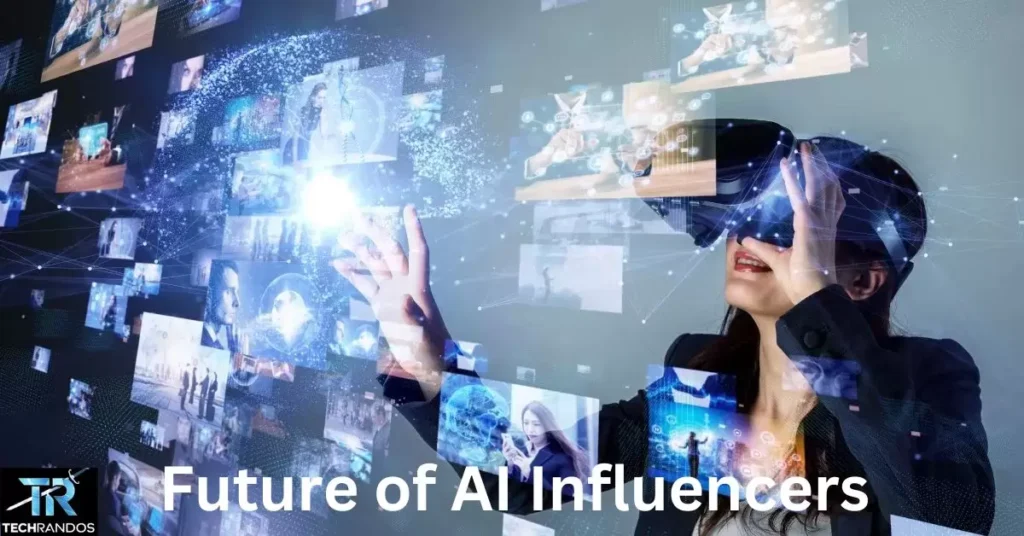
Emerging Trends and Technologies
The future of AI influencers is bright, with trends like:
- Integration with VR and AR for immersive experiences
- AI-human collaborations in content creation
- Hyper-personalized content delivery
Potential Risks and Opportunities
While the opportunities are vast, we must be mindful of risks such as:
- Ethical concerns around AI representation
- Potential job displacement in the influencer industry
- The need for regulations in AI-generated content
My Predictions for the Industry
I believe we’re just scratching the surface. In the coming years, I predict:
- AI influencers becoming mainstream across all industries
- More sophisticated AI models capable of real-time interactions
- A new category of human-AI hybrid influencers
Conclusion
In the dynamic and ever-evolving global of digital content material introduction, the upward thrust of AI influencers has presented a unique and exciting possibility to hook up with audiences in novel ways. Through my private journey of constructing an AI influencer to earn money online, I’ve discovered that the key to achievement lies in embracing the creative capability of this modern-day generation, whilst also navigating the ethical concerns and evolving outlook.
By leveraging AI-powered equipment and structures, I became able to create a captivating digital personality that now not only resonated with my audience however also enabled me to diversify my income streams through backed content, affiliate advertising, virtual goods, and strategic partnerships.
As you embark on your own exploration of the AI influencer landscape, I encourage you to technique this opportunity with a spirit of innovation, a focus on authenticity, and a dedication to moral practices. The opportunities are endless, and the potential rewards both financial and innovative are definitely excellent.
Frequently Asked Questions
What is an AI influencer?
An AI influencer is a computer-generated personality that engages with followers on social media platforms, creating content and promoting products or services.
How can I create an AI influencer in 2024?
To create an AI influencer in 2024, use advanced AI tools to generate a unique persona, create content, and interact with followers across social media platforms.
What tools do I need to build an AI influencer?
Essential tools include AI image generators, natural language processing software, content creation platforms, and social media management tools.
Is it profitable to create an AI influencer?
Yes, AI influencers can be profitable through brand partnerships, sponsored content, and merchandise sales, potentially earning significant income online.
How long does it take to build a successful AI influencer?
Building a successful AI influencer typically takes 3-6 months of consistent content creation and audience engagement to gain traction.
What are the legal considerations for AI influencers?
Important legal considerations include disclosure of AI status, copyright issues, and adherence to advertising regulations on social media platforms.
Can AI influencers replace human influencers?
While AI influencers are growing in popularity, they complement rather than replace human influencers, each offering unique advantages in the digital marketing landscape.
What skills do I need to create an AI influencer?
Key skills include understanding of AI technologies, social media marketing, content creation, and basic programming knowledge.


